Keeping Shavuot–The Feast of Weeks–Pentecost–Its Importance and Meaning to Messianic Believers Today
Keeping Shavuot-The Feast of Weeks-Pentecost-Its Importance and Meaning to Messianic Believers Today
For the Torah Observant Believer in Yeshua Messiah, Shavuot—The Feast of Weeks—Pentecost is about the giving and receiving of YHVH’s Torah and the establishing of the marriage covenant between YHVH and the Children of Israel. The Feast of Weeks is about the re-establishment of a broken covenant through the grace of YHVH and the outpouring of His Holy Spirit to aid fallen man in their keeping of the Creator’s instructions. Pentecost is about life and the establishing of the Body of Messiah through the atoning sacrifice of Yeshua Messiah and the infilling of the Holy Spirit.
What is Shavuot—The Feast of Weeks?
Shavuot is one of the seven-annual one of the 3-pilgrimage Feasts of YHVH. The instructions related to its keeping is found in the 23rd chapter of Leviticus. However, the origin of this set-apart day is founded upon the story behind the Creator’s giving of the commandments to the mixed multitude at the base of Mount Sinai as recorded in Exodus 19 through 24.
As the story goes, a mixed-multitude of souls, composed of the 12-tribes of Israel and various nationals from other nations, had escaped Egyptian-bondage roughly 50-days prior their settling at the base of Mount Sinai. YHVH, the Creator of the Universe, who bore this mixed multitude (with some estimates as high as 2 to 3-million souls) on eagles’ wings (Exodus 19:4) and brought them unto Himself. It was here and at this time that Father proposed a covenant between He and the Children of Israel that would be the shadow picture of an even greater covenant iteration in the years to come.
The 50-day trek from Egypt to Sinai foreshadowed the 50-day or 7-Sabbath Count (traditionally referred to as the Counting of the Omer) that begins at Wave Sheaf (i.e., Firstfruits) and culminates at Shavuot, also known as The Feast of Weeks and Pentecost in the Greek. (Read or listen to our discussion on the Day of Firstfruits.)
We find in Exodus 19 that Father proposes the establishment of a Covenant between He and Israel, whereby He would be Israel’s God and Israel would be His special and favored people above all the nation-people of the world (i.e., their Elohim) if they would hear His voice and obey His instructions (i.e., His commands). The Children of Israel agreed to the terns of this covenant and on that fateful day, at the foot of Mount Sinai, YHVH, in the midst of fire, lightening, smoke and loud shofar blowing, spoke His commandments directly to the people. Although the people were terrified by this indescribable manifestation, even to the point of demanding that YHVH speak exclusively through Moses to them so as to not repeat this terrifying manifestation, the covenant was ratified by the sprinkling of blood upon the written contract and upon the people.
A covenant is an official, established agreement between 2 or more interested parties. A blood covenant, which is what the Sinai Covenant was, required that both parties swear to abide by the terms of the contract. YHVH, because He is Creator and Elohim, certified His agreement to abide by the terms of the covenant (i.e., He would be the nation’s God and the people would reap the benefits of being a special possession of YHVH), simply by stating His Name—I am YHVH. Israel’s certification to abide by the terms of the contract was embodied in the nation’s collective, verbal affirmation that they would obey YHVH’s instructions and not worship or follow any other god. Thus, the contract—the covenant—was ratified and sealed by the sprinkling of blood upon the written contract and the people.
For all intents and purposes: this very first Shavuot was a marriage. This was a marriage between YHVH and the nation of Israel.
The Covenant is Broken
It was only but a short time after the ratification of the marriage agreement between Israel and YHVH that the people broke the covenant.
Because this was a blood covenant, if either party were to violate the terms of the contract, their life would be required of them. It goes without saying that YHVH could not—would not—violate the terms of the covenant. Israel, on the other hand, because they failed to have the Spirit of YHVH and His Torah (i.e., YHVH’s instructions) implanted in their hearts, returned to the worship of their Egyptian god (i.e., the Golden Calf) while Moses was attending to sacred business on the Holy Mountain (Exodus 32).
Despite the nation breaking the Sinai Covenant, the Almighty continued to honor the covenant. Israel cheated on her spouse YHVH. Yet YHVH did not put Israel, His bride away immediately; at least not until many centuries later when Israel delved so deep into idolatry that they could no longer hear the voice of YHVH and had completely turned their back upon their Elohim. That’s when YHVH divorced His bride Israel and the nation was left to suffer through a severe fracturing of the nation into two, followed by several usurpations, exiles and captivities at the hands of pagan nations and rulers.
The New (Renewed) Covenant
The Father knew that His people would break the marriage covenant from the very beginning. Thus, He set into motion a plan that would re-invigorate that broken covenant and re-establish the nation of Israel (both Houses of Israel—Judah and Israel) back to her favored state as His chosen people. This re-established covenant would be the Sinai Covenant on steroids. For not only would the Father bring back the original covenant to be followed by a reconstituted nation of Israel, it would be extended to the nation peoples of the world if they too agreed to the terms of the agreement. But Father did not stop there. Knowing the inherent problems His people originally had keeping His instructions, He would give His children the help they needed to keep His instructions and to ensure their success in staying in covenant with Him. This He would accomplished through the outpouring of His Holy Spirit upon His elect. Thus the Creator of the Universe’s presence would be within each one of His chosen people, and that Holy Spirit would inscribe Torah—Abba’s instructions—upon each and every heart and mind.
Of this New Covenant, the Prophet Jeremiah wrote:
“Behold, days are coming, declares YHVH, when I will make a new covenant with the house of Israel and with the house of Judah. Not like the covenant which I made with their fathers in the day I took them by the hand to bring them out of the land of Egypt. My covenant which they broke, although I was a husband to them, declares YHVH. But this is the covenant which I will make with the house of Israel after those days, declares YHVH. I will put My law within them and on their heart I will write it; and I will be their God, and they shall be my people” (Jeremiah 31:31-33; NASB).
This prophecy was confirmed by the Prophet Ezekiel who wrote:
“And I will give them one heart, and put a new spirit within them. And I will take the heart of stone out of their flesh and givem them a heart of flesh that they may walk in My statutes and keep MY ordinances and do them. Then they will be My people, and I shall be their God” (Ezekiel 11:19, 20).
Down Payment on the Renewed Covenant
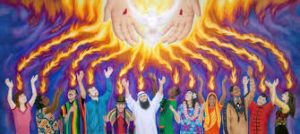
The giving of Torah at Mount Sinai was a shadow picture of the Day of Pentecost when YHVH’s Holy Spirit was poured out upon the disciples of Yeshua.
Although the New (or Renewed) Covenant has not been fully enacted, we saw the down-payment of it played out on the Temple Mount on Shavuot, just 10-days after Yahoshua commissioned His disciples on the Mount of Olives and then ascended up on high. On that fateful day, Pentecost 28 C.E., the Holy Spirit (i.e., the Ruach HaKodesh) was poured out upon the disciples of Yeshua who were attending Shavuot, gathered on the Temple Mount (Acts 2). This was the fulfillment of the “shadow picture” of the very first Shavuot at Mount Sinai. At the first Shavuot, YHVH gave the Children of Israel His Torah—His instructions—His commandments. On the Day of Pentecost in 28 C.E., YHVH gave the Children of Israel (i.e., the disciples of Yeshua HaMashiyach) His Holy Spirit. Thus we see how Torah became fully manifested and is Spirit within the people YHVH. At the time of the first Shavuot, 3,000 souls perished because Israel chose to break the covenant. At the time of Pentecost on the Temple Mount, 3,000-souls entered the Body of Messiah and into life eternal.
The Importance of Shavuot For Messianic Believers Today
Shavuot remains relevant to every Torah Observant Believer in Messiah today. Beyond the fact that we are commanded by YHVH to keep Shavuot (Leviticus 23:21, 22), we gain invaluable and crucial understanding of the New (Renewed) Covenant that Messianics are now privileged to be under. Shavuot is important in reminding Messianic Believers of the importance of keeping Torah and being in a right-relationship with the Creator of the Universe. Shavuot also serves as a prompt for every Torah Observant Believer to seek the leading and guidance of the Holy Spirit in their lives such that they live lives of their chosen status as Kings and Priests of YHVH Elohim. And Shavuot teaches the Messianic Believer that just mechanically keeping Torah is not to secure their place in the Kingdom of YHVH. Torah is Father’s house-rules that help us maintain a substantive relationship with Him. Admission into the Kingdom of YHVH is gained through the shed blood of YHVH, for salvation is a gift from Yah. YHVH’s Holy Spirit aids the believer in his/her keeping of the Creator’s house-rules in the midst of his/her living in this corrupt and dying world.
Shavuot then is about living the life that the Creator of the Universe always had in mind for His chosen people. Shavuot is living life in the Spirit.
Keeping Shavuot
The keeping of Shavuot by today’s Torah Observant Believer in Yeshua Messiah is pretty simple. We find in Leviticus 23: 21 that Messianics are to:
- Make a proclamation on Shavuot; such that believers are to extol the glories of the Creator and speak to others of YHVH’s Word.
- Have a holy convocation; such that believers come together (e.g., fellowships and congregations and assemblies) for the reading of Scripture and the breaking of bread.
- Perform or conduct no servile or laborious work.
With the Temple in Jerusalem no longer in existence, Messianics can not truly keep Shavuot as one of the 3-pilgrimage Feasts of YHVH and as instructed in Torah (Exodus 23:14-17; Deuteronomy 16:16). However, under the auspices of the renewed covenant, the believers’ bodies have replaced the Temple proper as the dwelling place of YHVH (1 Corinthians 3:16; 6:19). Thus, wherever 2 or 3 have gathered together in their Master’s Name, there He will be in their midst (Matthew 18:20).
Thus every Torah Observant Believer in Yahoshua Messiah is obliged to keep Shavuot in Spirit and in Truth. The actual method for keeping the Feast of Weeks is strictly between the individual believer and YHVH (Colossians 2:16, 17; Romans 14:5).
Faithfully,
Rod and Hilary
The Fox in the Hen House–The LGBTQ Infiltration of Judeo-Christianity
Shalom beloved. I pray that this installment of The Messianic Torah Observer Journal finds you, your families, and your fellowships well and blessed. They Say that Curiosity Kills the Cat True to form, Hilary and I canvassed portions of YouTube to augment our worship...
We’re Getting Married in the Morning–Thoughts and Reflections on Torah Reading 59
Shabbat Shalom Saints of the Most High. Welcome to the second post of our The Messianic Torah Observer Journal. Today is a special day of sorts. It’s not only the Sabbath, but it is also the start of the 9th Biblical Month. Rosh Chodesh. There are no mandated Feasts...
Learning to Lean on Yeshua Messiah–Thoughts and Reflections on Torah Reading 58
Shabbat shalom beloved. We pray that you, your families, and your fellowships are well and blessed during these perilous times. Despite these being perilous times, beloved, we who are the redeemed of Yah through Yeshua Messiah, can find refuge and shalom in our...
We were Baptized into Moses in the Red Sea
Our Baptism in the Red Sea Was Illustrative of our Transformation into the People of God So, in our departure from Mitsrayim/Egypt, which was representative of a would-be child of Yah coming into a covenant relationship with Yah through the Person and Ministry of...
Walking in God’s Divine Guidance and Protection
Introduction This week’s Torah Portion/Parshah/Reading is the 56th Reading in our 3-year Torah Reading Cycle. And it is contained in the Cepher of Exodus/Shemot 13:21-15:18. It is a continuation of last week’s reading which I entitled “The Key to Knowing...
The Key to Knowing God: Remembering and Obeying
In the past two readings, which we did not cover because we were on hiatus for the Fall Feasts, Yisrael experienced or witnessed the inauguration of Pesach in the midst of the final tenth plague that resulted in the death of every Egyptian/Mitsri firstborn and the...
The Thirst-Quenching Waters of Sukkot-The Feast of Tabernacles 2022
Sukkot-The Feast of Tabernacles is the Season of our Joy True joy is an offshoot of the indwelling of the Holy Spirit or the Ruach HaQodesh in each of us. Our joy, especially as expressed through Yah's Feasts, is incomplete without the Ruach HaQodesh's influence....
Getting to the Heart of Yom Kippur–Day of Atonement 2022
Yom Kippur Just a Day of Fasting? What did Yah truly mean by His people afflicting their souls on Yom Kippur? Was He commanded us to engage in just a fast? Turns out that Abba requires more from us on Yom HaKippurim than just a full day of not eating and drinking....
The Realities of Yom Teruah 2022
Introduction to our Discussion Welcome to the Day of the Blowing of Trumpets, or better, the Blowing of Shofars 2022. And with that, we pray that you are earnestly preparing and eagerly awaiting the arrival of Yom Teruah 2022. The title of our...
An Overview of the Fall Feasts of the LORD 2022-Part 1 of the Fall Feasts of the LORD 2022 Series
Resurrection Truth versus Rapture Error-Part 3 of the Death, the Grave, and the Resurrection Series
Introduction This is “Resurrection Truth versus Rapture Error.” This will be the 3rd installment to our Death, the Grave, and Resurrection series which spun off from our Torah Reading 45 which was entitled “And he (Ya’achov) was Gathered Unto His People. ...
Even the Small Things Matter to God-A Messianic Study of Exodus 4:22-26-STAR-48
Introduction This is “Even the Small Things Matter to God.” This is the 48th Reading of our 3-year Torah Reading Cycle. It is contained in Exodus/Shemot 4:14-6:1. But we will be focusing just on verses 22 to 26. Looking Back to STAR-47, entitled “God’s Holy...
Rosh Chodesh 6th Month 2022-The Start of the 6th Biblical Month
Chag Sameach Rosh Chodesh beloved. Happy and blessed 6th Month to you all. As I am posting this brief discussion here on The Messianic Torah Observer, the renewed moon will have been sighted by at least two-trained observers in Yisra’el. Thus, wherever we live ...
God’s Holy Character–A Messianic Study of Exodus 3:1-4:13
Introduction This is God’s Holy Character-A Messianic Study of Exodus 3:1-4:13. It is the 47th Torah Portion of our 3-year Torah-reading cycle. Now, despite there being a great many historical and spiritual nuggets that the practical, truth-seeking...
Israel-The Birth of a Nation Through Tribulation-STAR-46
This is Israel: The Birth of a Nation Through Tribulation. It is a study of the 46th Parshah of our 3-year Torah Reading Cycle. This week's reading is found in Exodus/Shemot 1:1-2:25. Introduction to the Reading The historical record transitions from that of a focus...
Death-the Grave-the Resurrection-Part 2
Introduction This is part 2 of our discussion on death, the grave, and the resurrection. And we will be picking up where we left off in part 1, which if you haven’t had the opportunity to either read or listen to that post on any of the platforms in which...
He Was Gathered unto His People-Death-The Grave-The Resurrection–Part-1–STAR-45
Introduction This is “He Was Gathered unto His People—Death-The Grave-The Resurrection—Part 1” This will be a discussion on the 45th Torah Reading of our 3-year Torah Reading Cycle. Our focus text is Genesis/Beresheit 49:27-50:26. This passage concludes...
The 9th of Av–You Are Called by Name–STAR-44
Tisha B'Av--The 9th of Av--"The Saddest Day of the Jewish Calendar Year." According to Hillel’s Calendar, which I frequently refer to as the Jewish Calculated Calendar, as I am recording and posting this installment of TMTO Sabbath Thoughts and...
“Let No Man Judge You” in Your Keeping of Torah–A Messianic Examination of Colossians 2:16-17
This is "Let No Man Judge You" in Your Keeping of Torah--A Messianic Examination of Colossians 2:16-17. This is sort of a continuation, if you will, to our very last installment which was entitled “Did the Apostle Paul Permit the Eating of all Meats? A...
Did the Apostle Paul Permit the Eating of All Meats? A Messianic Examination of 1 Timothy 4:1-5
Setting the Table for our Discussion Here Today This is “Did the Apostle Paul Sanction/Permit the Eating of all Meats? A Messianic Examination of 1 Timothy 4:1-5.” Our discussion here today will serve as another installment to our massive Paul and Hebrew...
Does Torah Cause Someone to Sin More? A Messianic Examination of Romans 5:20
Goal: This is “Does Torah Cause Someone to Sin More? A Messianic Examination of Romans 5:20.” And so, our survey of the hard-to-understand—those challenging Pauline passages—takes us in today’s installment of TMTO, to Romans 5:20. And the KJV...
Experiencing the Wisdom of God Persists Even in the Midst of Despair–STAR-37
This week's portion is the 37th-Reading of the 3-year Torah Reading Cycle (STAR-37). And it is a familiar passage. For it is the story of Yosef interpreting the dreams of the cupbearer and baker in the Egyptian prison. If we recall STAR-36, Yosef was cast into prison...
Amazing Things Happen When God is with Us–Torah Reading 36–The Story of Joseph and Potiphar’s Wife
Our Torah Reading for this Shabbat of 6/11/2022 is found in Genesis 39:1-23. It is The Story of Yosef and Potiphar's Wife. We find in this reading, themes of righteousness; trust; loyalty; prosperity; sexual immorality; favor-favor with man and favor with God; and...
Finding Peace with God-Eternal Life and a Blessed Assurance
This is “Finding Peace with God—Eternal Life and a Blessed Assurance.” This is a continuation of our Paul and Hebrew Roots mega-series where we’ve been discussing some of the more challenging—hard to understand Pauline writings. And we’ve been spending most of our...
The Story of Judah and Tamar: A Reminder that Yah’s Will Shall Already Triumph Over Humanity’s Carnality
This Week's Torah Reading #35--The Judah-Tamar Story This week's Torah Reading, number 35 in our three-year Torah Reading cycle, is found in Genesis/Beresheit 38:1-30. It is the story of Yehudah (aka Judah) and Tamar. It conveys tremendous spiritual lessons that...
Shavuot-Pentecost 2022 in Focus–Netzari-Messianic Perspectives on the Feast of Shavuot
1. An Introductory Primer on Shavuot What is Shavuot? For the Torah Observant Believer in Yeshua Messiah, Shavuot—The Feast of Weeks—Pentecost is about the giving and receiving of YHVH’s Torah and the establishing of the marriage covenant between YHVH and the Children...
The Inapplicability of Torah–Part 3 of Where There is no Law There is no Transgression
This is “The Inapplicability of Torah.” It is the final installment to our 3-part series within a series entitled “Where There is no Law There is no Transgression.” Because I have so much content to cover today and I’m led to bring this series within a series to a...
Where There is no Law There is no Transgression-Part 2-The Role of Torah in the World
Quick Review of Part 1 Our focus passage was Romans 4:11-15 with particular emphasis on verse 15: For Torah brings wrath, because where there is no law there is no transgression [of the law]. Unfortunately, denominationalists erroneously use this and related...
Where there is no law, there is no transgression: Part-1-The Difference Between Sin and Transgression of the Law
A Continuation of Where we Left Off Today, we sort of pick up where we left off in our previous Paul and Hebrew Roots series. If you recall from our last installments to this series, the so-called Apostle to the Gentiles asserted to his Roman readers that he fully...
The Exceeding Kingdom Qualifying Righteousness That Takes us from Passover to Tabernacles-Part 2–Maintaining our Righteous Garments
Goal I will be picking up from where I left-off from Part-1 of our last discussion entitled "The Exceeding Kingdom Qualifying Righteousness That Takes us from Passover/Pesach to Tabernacles/Sukkot.” Or rather, from Babylon/the world to the Kingdom. And if by...
Overturning Roe v. Wade and the Modern Messianic-Thoughts and Reflections
A Leak That is Shaking up Nation On M-nday, 5/2/2022, The Epoch Times reported that a supposedly leaked U.S. Supreme Court document suggests that the Judicial Branch of this country may finally overturn controversial Roe V. Wade. News of this leak rocked the...
God Humbles Those Who He Enters into Covenant With
This is an overview of the 30th Reading of our 3-year Torah Reading Cycle. It is found in Genesis/Beresheit 31:3-32:2. I use the Hebrew names of the patriarchs throughout this post. And just to familiarize you with the names so as to not cause any confusion:...
The Exceeding Kingdom Qualifying Righteousness That Takes us from Passover to Tabernacles-Part 1
The Exceeding Kingdom Qualifying Righteousness That Takes Us from Passover to Tabernacles-Part 1 One of the many things about Passover (aka Pesach) and the Days of Unleavened Bread (aka Chag HaMatzah) that we must be mindful of as we progress through the...
Keeping Passover by Way of the Renewed Covenant-Part 3 of Keeping Passover and Unleavened Bread in 2022
This is the third and final installment to our “Keeping Passover and Unleavened Bread in 2022” discussions. This installment is entitled “Keeping Passover by Way of the Renewed Covenant-In Spirit and in Truth.” If by chance you did not read or listen to...
Keeping Passover by Way of the Original Covenant-Part 2 of Keeping Passover and Unleavened Bread in 2022
This is “Keeping Passover and Unleavened Bread in 2022.” This will be part two (2) of a three (3) part discussion on Passover and the Feast of Unleavened Bread or Chag HaMatzah, which I’ve elected to entitle this particular discussion: “Keeping Passover by Way of the...
Some Passover Basics-Keeping Passover and Unleavened Bread in 2022-Part 1
This is “Some Passover Basics.” It is the first installment of a three (3) part series I chose to entitle: “Keeping Passover and Unleavened Bread in 2022.” We have a lot to cover. So let’s get right into it. For those of us who keep the Observational...
Shabbat HaGadol–The Pathway Towards our Redemption and Atonement-STAR-28
This is Shabbat HaGadol: The Pathway Towards our Redemption and Atonement. In observing Jewish circles, this Sabbath is referred to and celebrated as “Shabbat HaGadol.” Otherwise referred to as the great Sabbath, Shabbat HaGadol is traditionally held on...
Guarding the Month of Aviv-Aviv’s Critical Importance to God’s Covenant Elect
Opening Remarks "Observe the month of Abib, and keep the Passover unto Yehovah thy Elohim; for in the month of Abib Yehovah thy Elohim brought thee forth out of Egypt by night" (Deu./Devarim 16:1; ASV modified). Which brings me to the title of this discussion...
Birthrights-Blessings-Covenant Promises: Lessons Learned from the Story of Esau and Jacob-Part 2-STAR-26
This is Birthrights, Blessings, Covenant Promises-Lessons Learned from the Story of Esau and Jacob, Part 2. This will be the 26th Torah Reading or Parshah of the 3-year Torah Reading Cycle. Our reading is found in Genesis or Beresheit 27:30-38:9. Having...
Birthrights-Blessings-Covenant Promises-Lessons Learned from the Story of Esau and Jacob-Part 1-STAR-26
This is Birthrights, Blessings, Covenant Promises-Lessons Learned from the Story of Esau and Jacob, Part 1. This will be the 26th Torah Reading or Parshah of the 3-year Torah Reading Cycle. Our reading is found in Genesis or Beresheit 27:30-38:9. As in...
Does Paul Discourage God’s People from doing Good Works or Keeping Torah in Favor of Faith? Part 2 of The New Testament Validates the Necessity of Torah Living for God’s People Series
This is “Does Paul Discourage God’s People from doing Good Works in Favor of Faith?” This will be part 2 of our Paul Officially Validates Torah Living for God’s People series. Our focus passage for this discussion is found in Romans 4:1-8. But we will pay...
The Realities of Covenant Blessings in this World-Covenant Lessons Learned from Isaac-STAR-24
Clarify Chosen STAR-23 Post Before we begin our reading discussion for this week, I wanted to add just a thought to last week's post entitled "How do we know if we have been chosen to be in covenant with God." If you've not had the opportunity to read or...
How do we Know if We’ve Been Chosen to be in Covenant with God? –STAR 23
This is “How do we Know if we Have been Chosen to be in Covenant with God?” It is the 23rd parshah/reading of our 3-year Torah Reading Cycle. It’s found in Genesis or Bereshit, 25:1-26:11. It’s a longer reading than most in the 3-year reading cycle. But because the...
Biblical Rosh Hashanah 2022 Update
Starting off, I would be remiss if I did not connect this update with my last post entitled "Why I Keep the Torah (Observational) Calendar and not the Other Popular Messianic Calendars." In that post, I gave five reasons why I keep the Torah (Observational) Calendar....
Why I Keep the Torah (Observational) Calendar and not the Other Popular Messianic Calendars
Goal of this Post The timing and purpose for this post is not one of happenstance. For this week is a most critical time for those of us who keep the Torah (Observational) Calendar. This week, a number of trained and experienced search teams consisting of Karaite Jews...
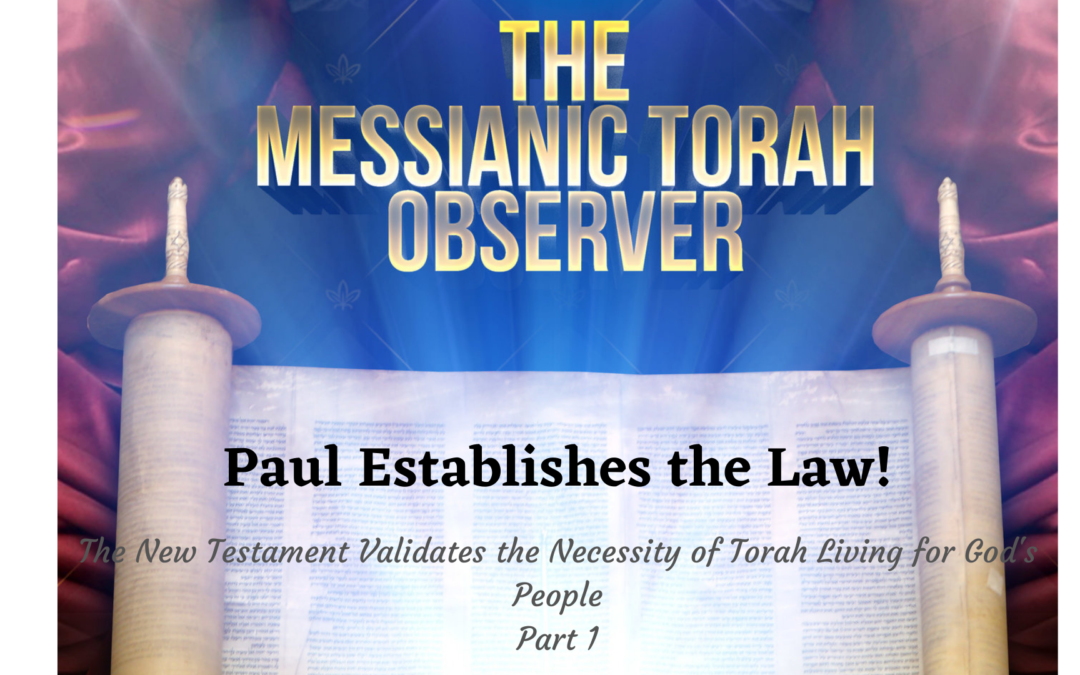
Paul Establishes the Law-Part 1 of the New Testament Validates the Necessity of Torah-Living for God’s People Series
In today’s discussion, we will attempt to define what the apostle means by “we establish Torah” in light of those seeming “anti-Torah” statements he makes in chapter 3 of the Book of Romans.
The Messianic Versus the World-Part 1-The Messianic Against the Corrupt and Evil Governments, Leaders and Sheeple of this World
The Messianic Versus a Corrupt World The governments of this world along with their leaders are openly evil and corrupt. They have brazenly shown that they have no shame in this regard. Many, in fact, have boasted of their evil and corrupt ways and intentions to...
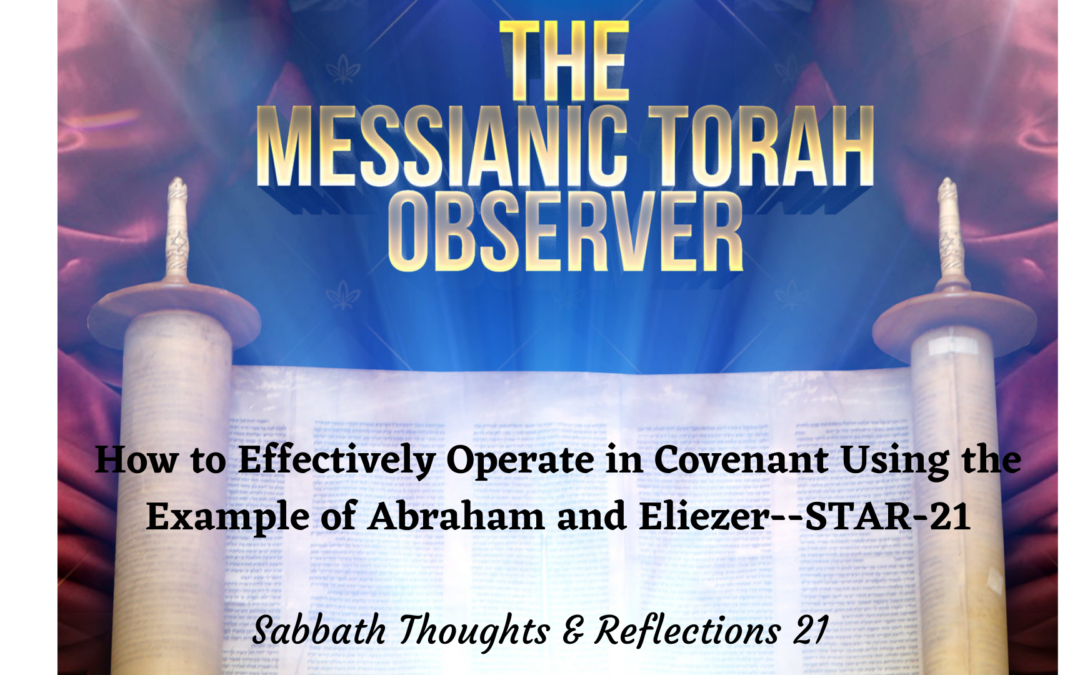
How to Effectively Operate in Covenant Using the Example of Abraham and Eliezer–STAR-21
We’ve talked quite a lot about be the importance of being in covenant and operating in covenant. But how does one operate in covenant? What is needed to operate in covenant. Well, this week’s Torah Reading may provide us the answers to these questions. Shabbat Shalom and Welcome.
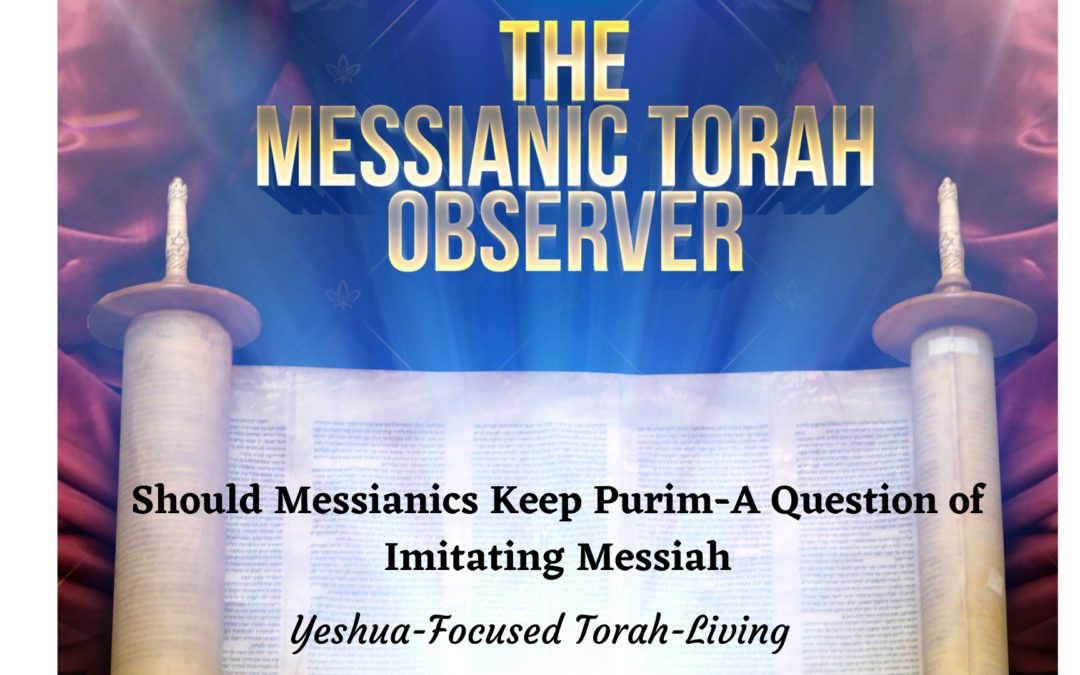
Should Messianics Keep Purim? A Question of Imitating Messiah
In this installment of TMTO, we ask and answer the question: Should Messianics keep-observe-honor-memorialize Purim? And in our brief exploration of this topic, we examine opposing views as it relates to Messianics and Purim.
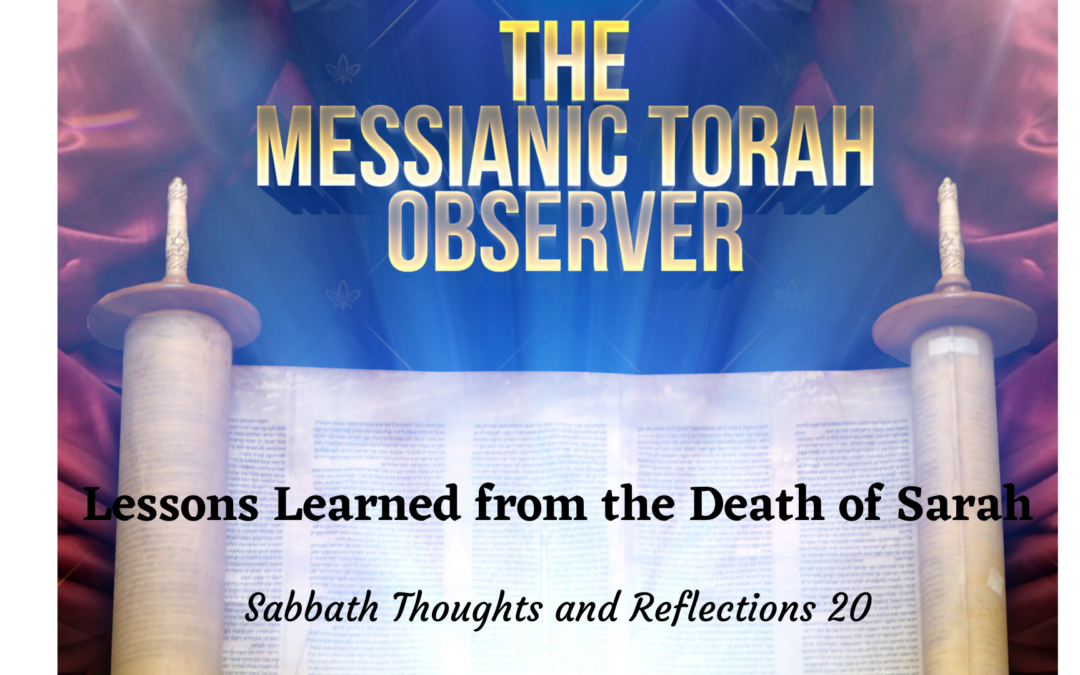
Lessons Learned from the Death of Sarah-STAR-20
In our Torah Reading for this Sabbath, we read of the death of the Matriarch of our Faith, Sarah. And in our discussion, we will explore the eternal truths associated with this sad, but important story. We will touch upon the themes of loving our wives; being a sojourner in this world; burial versus cremation when caring for a deceased loved one; as well as we’ll examine many of the historic and cultural elements that are attached to this beautiful Reading. Shalom and Welcome.
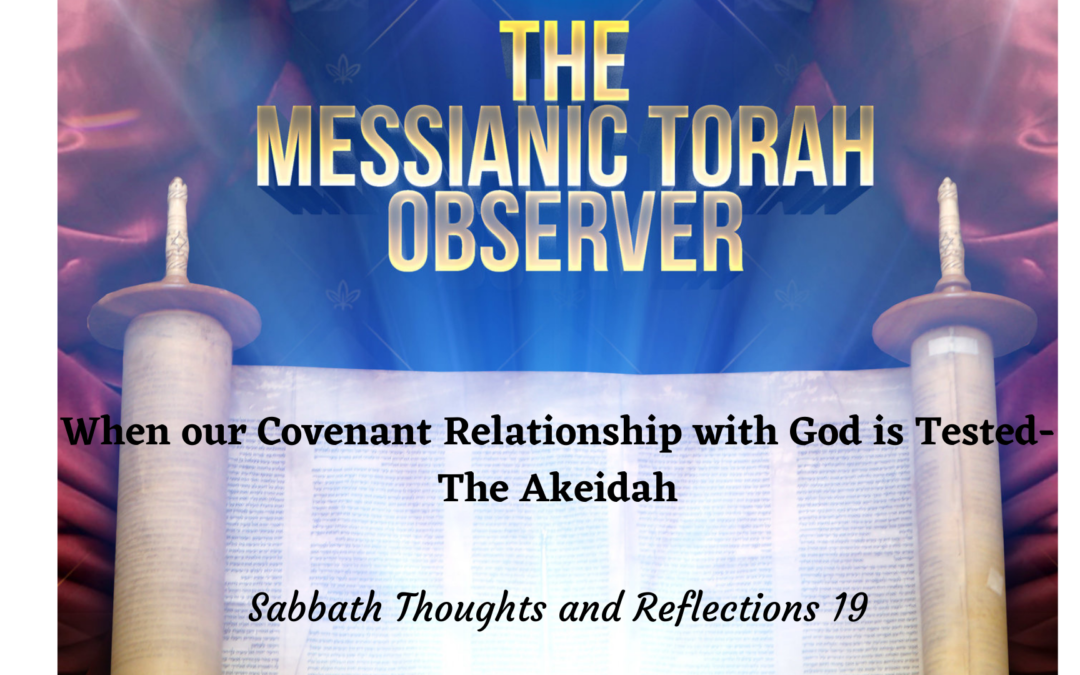
When our Covenant Relationship with God is Tested-Akeida-STAR-19
This week’s Torah Reading is that of the Akeidah or the binding of Isaac. It is a story about obedience, trusting faith and the ultimate goal of the Abrahamic Covenant. We will also explore the ramifications associated with God’s testing of those whom He loves. This is one of the most important Torah Reading Discussions of the Torah Reading Cycle. Come fellowship with us and let’s discuss the Eternal Mysteries of Yah’s Eternal Words of Life.
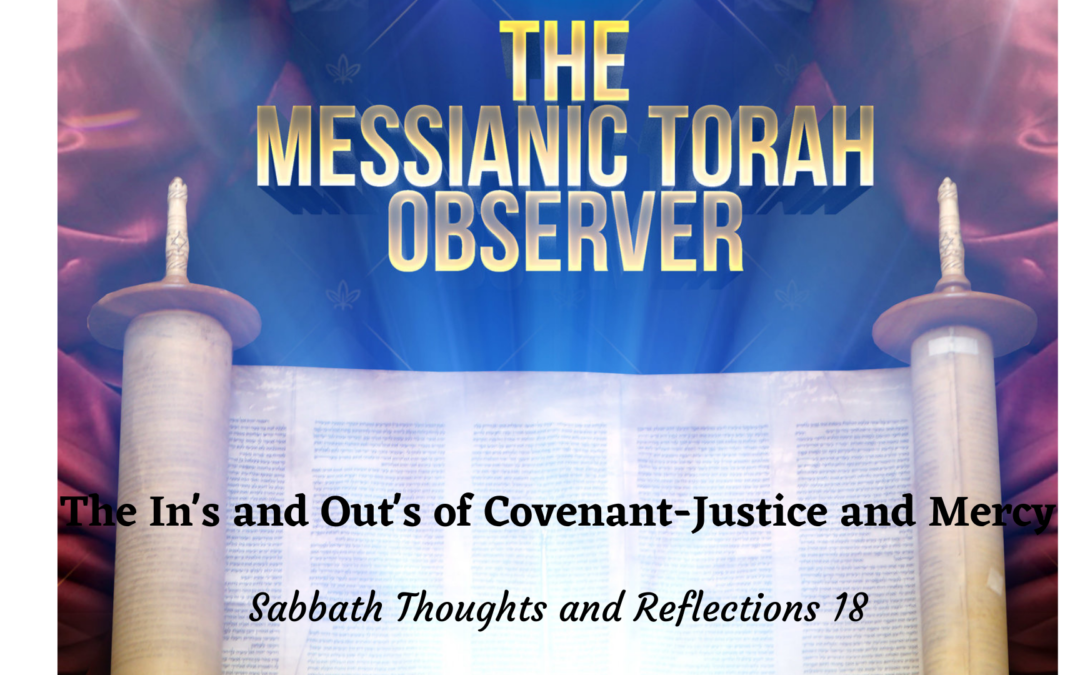
The In’s and Out’s of Covenant-Justice and Mercy-STAR-18
Many of us view covenant as an exclusive club or culture that belongs to God’s elect and those who find themselves outside of covenant are doomed to be outside of God’s blessings and provision. But the truth of the matter is that God operates in ways that are often foreign to us and that defy how we believe God should operate. In today’s Torah Reading discussion, we discuss the in’s and out’s of covenant and how God’s justice and mercy define how He will interact with those who are in covenant versus those who are outside covenant.
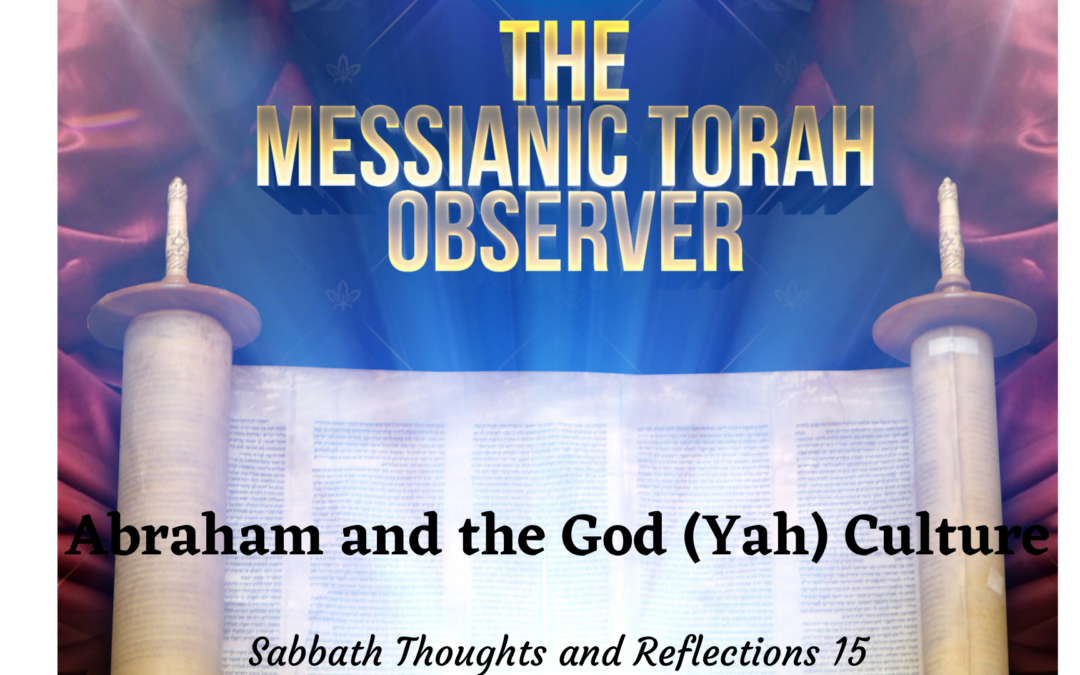
Abraham and the God (Yah) Culture–Sabbath Thoughts & Reflections 15
This week’s Torah Reading touches on a number of relevant themes that include righteousness, justice, reverence, hospitality, boldness, laughter, theophanies and covenant. But the one theme that stands out most is culture. In this installment of TMTO’s Sabbath Thoughts and Reflections, we explore each of these themes, in particular the theme of culture. What is the God Culture/the Hebrew Culture? What was Abraham’s role in that Culture? And what does that culture have to do with us today?
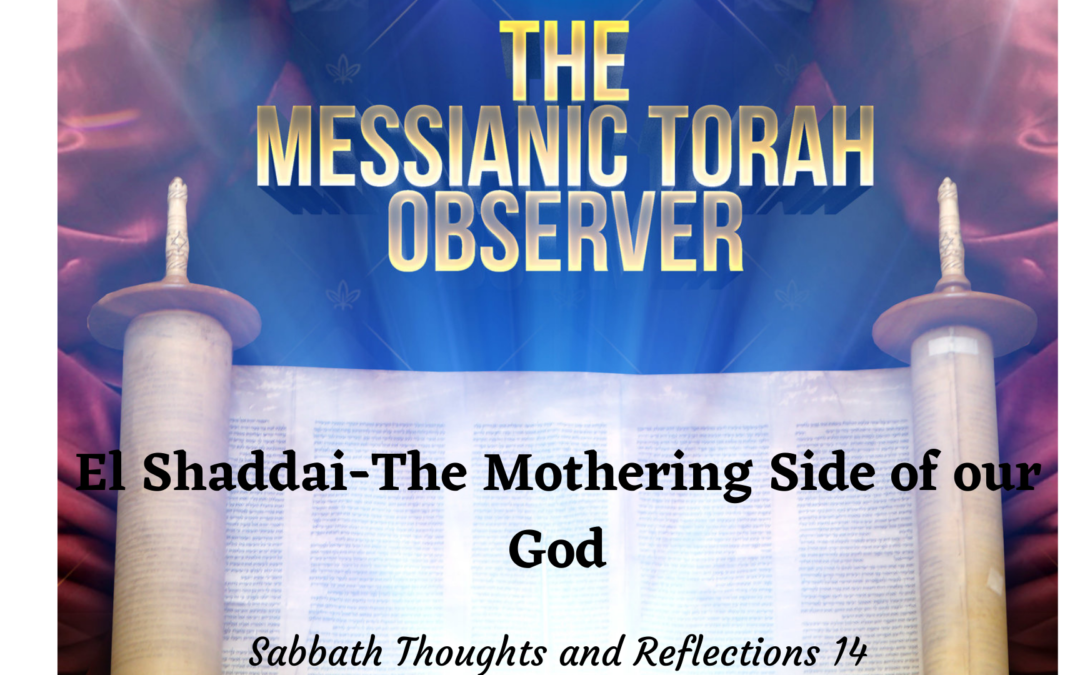
El Shaddai-The Mothering Side of our God-STAR 14
Seems we have been indoctrinated to view God exclusively from a “Fathering” perspective. But could one of God’s revealed names be indicative of a “Mothering” side to the Creator of the Universe? In this installment of TMTO we explore and discuss the power and meaning of El Shaddai.
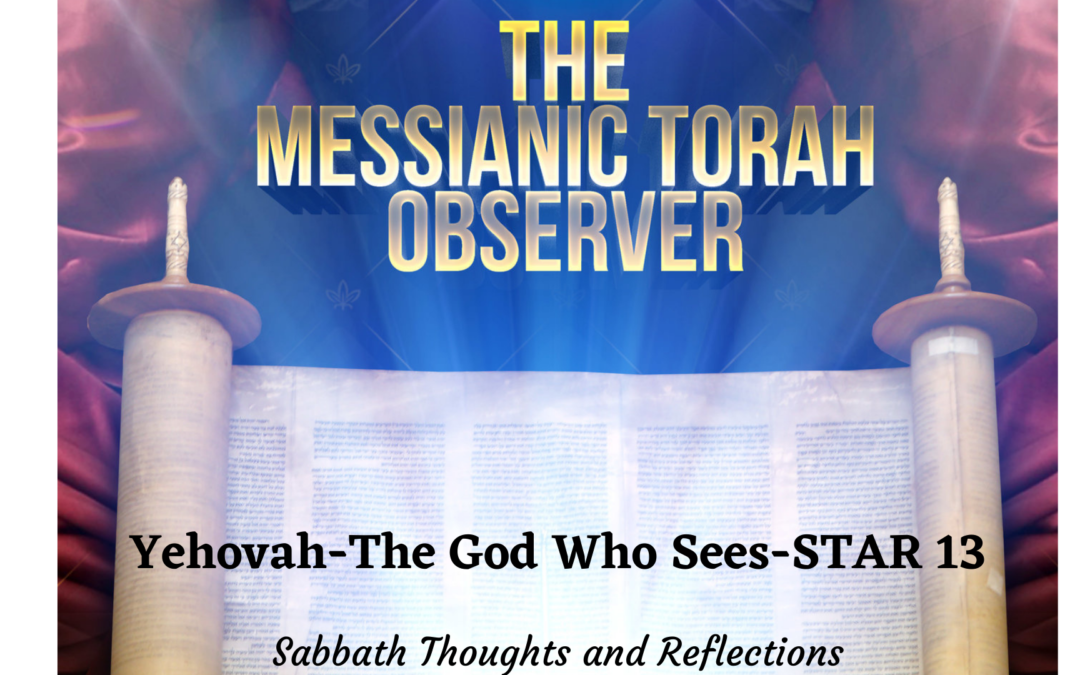
Yehovah-The God Who Sees-STAR 13
In our reading today, we’re led to think and reflect on the themes of:
● Trusting Faith
● Respect
● Patience & Perseverance
● Responsibility
● Honor
● The Spirit Realm Intersecting with the Physical Realm
● Promise
● Sonship
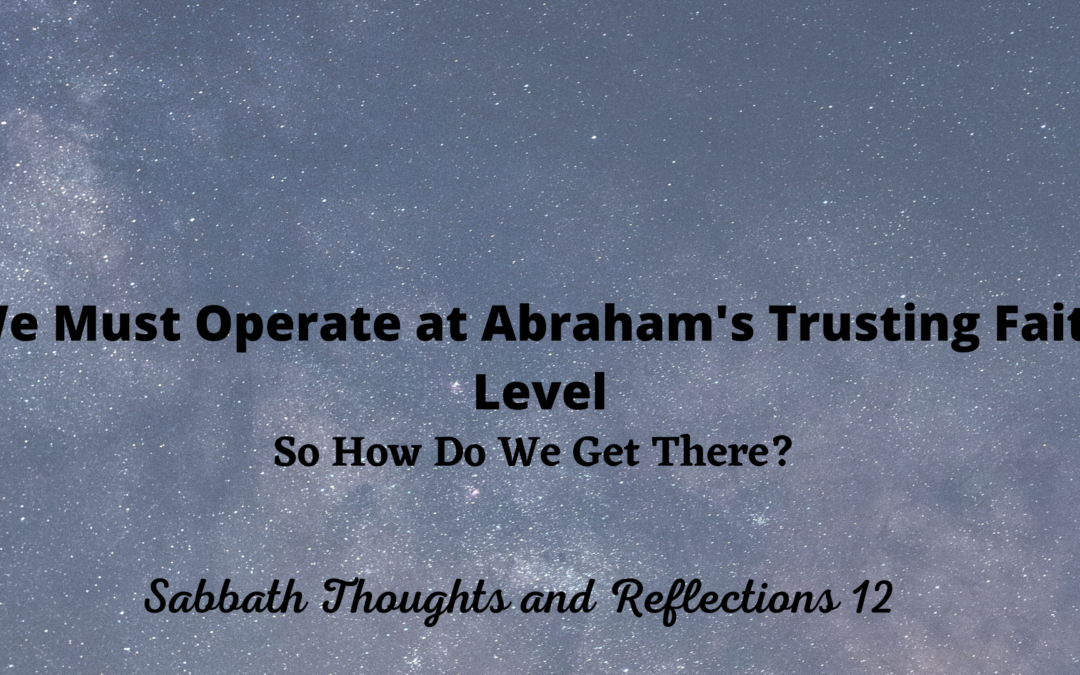
We Must Operate at Abraham’s Trusting Faith Level-So How Do We Get There? STAR 12
Today’s Torah Reading discussion will touch upon a great many themes that include operating in a trusting faith; the righteousness of Elohim; obedience to Yah’s instructions; divine protections and rewards; and the wisdom of challenging or questioning Yehovah.
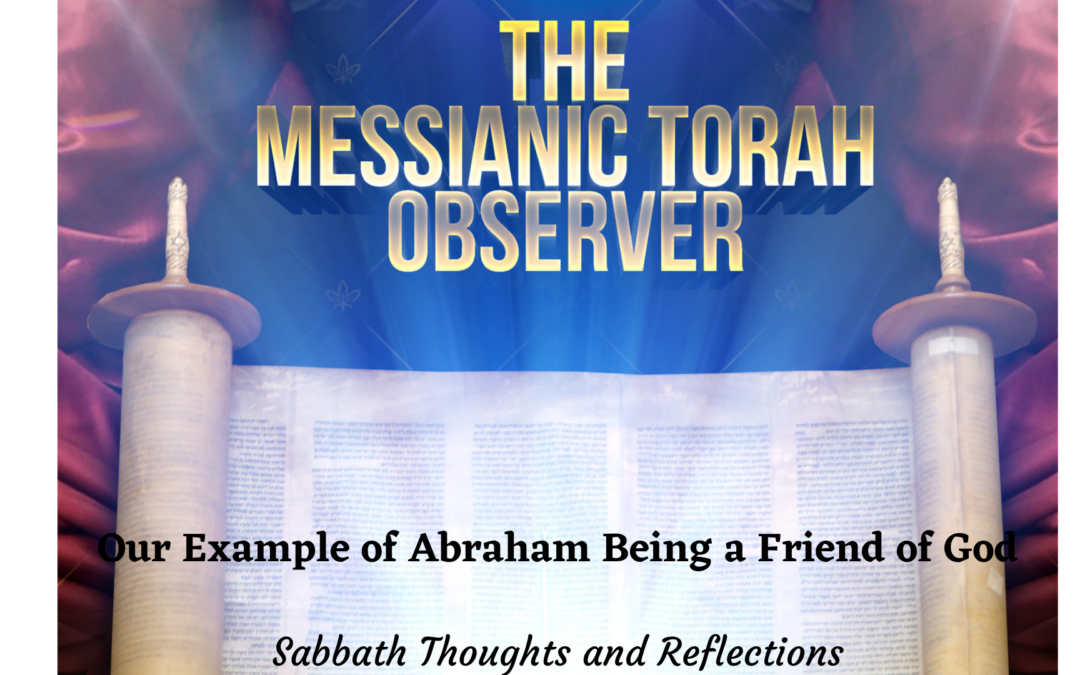
Our Example of Abraham Being a Friend of God-STAR-11
The circumcised heart of an individual—contrite and broken and humble in spirit—is the one thing that captures Yah’s attention and places him or her in contention for being chosen as His friend and ultimately His child. If our heart ain’t right, we ain’t going to be chosen to enter into an obedient covenant relationship with Yehovah, much less a friend or child of His.
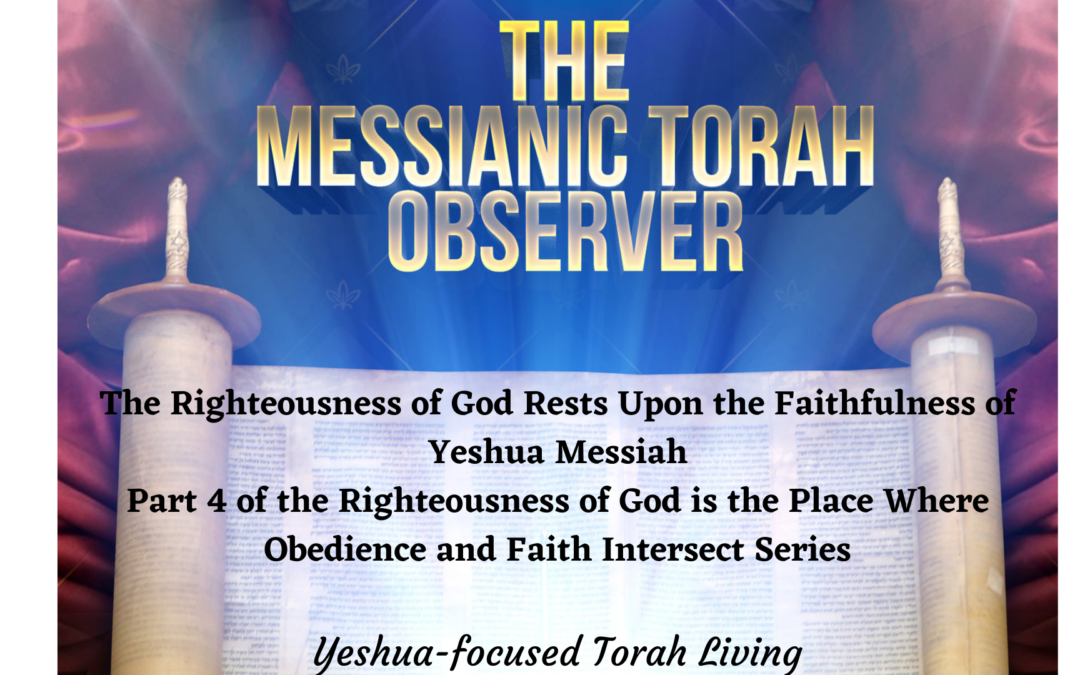
The Righteousness of God Rests Upon the Faithfulness of Yeshua Messiah
Indeed, the Righteousness of God is the place where faith and obedience come together through the Person and Ministry of Yahoshua Messiah. His faithful obedience to Yehovah becomes our faithful obedience, even unto death.
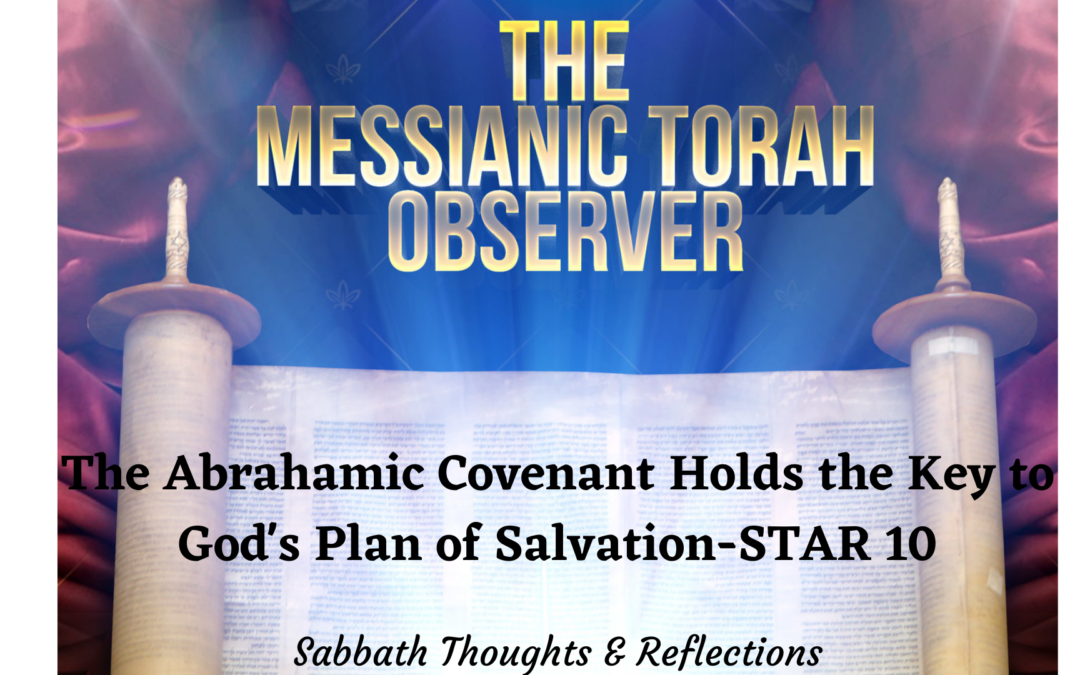
The Abrahamic Covenant Holds the Key to God’s Plan of Salvation-STAR 10
The Abrahamic Covenant is the essential element of this week’s Torah Reading. We find in our discussion that the Abrahamic Covenant holds the key to God’s Plan of Salvation. Shabbat Shalom.
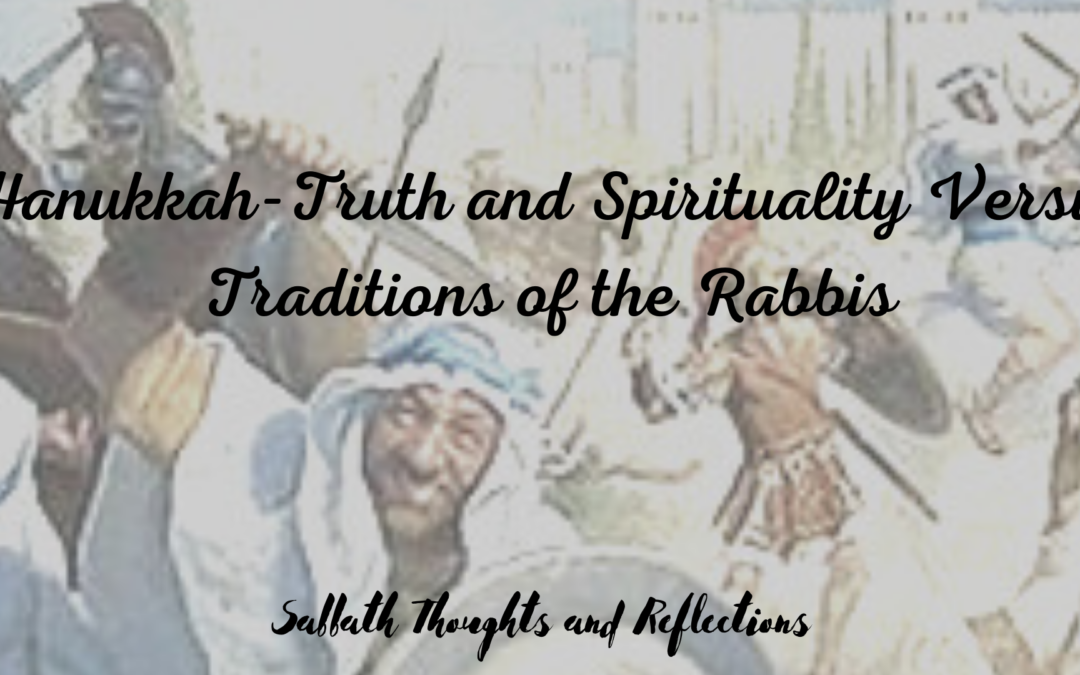
Hanukkah-Truth and Spirituality Versus Traditions of the Rabbis
Many within our Faith Community will be celebrating Hanukkah this week. But is their celebration aligned with the Truth and Spiritual Reality of the Holiday or rather on the Traditions that revolve around it.
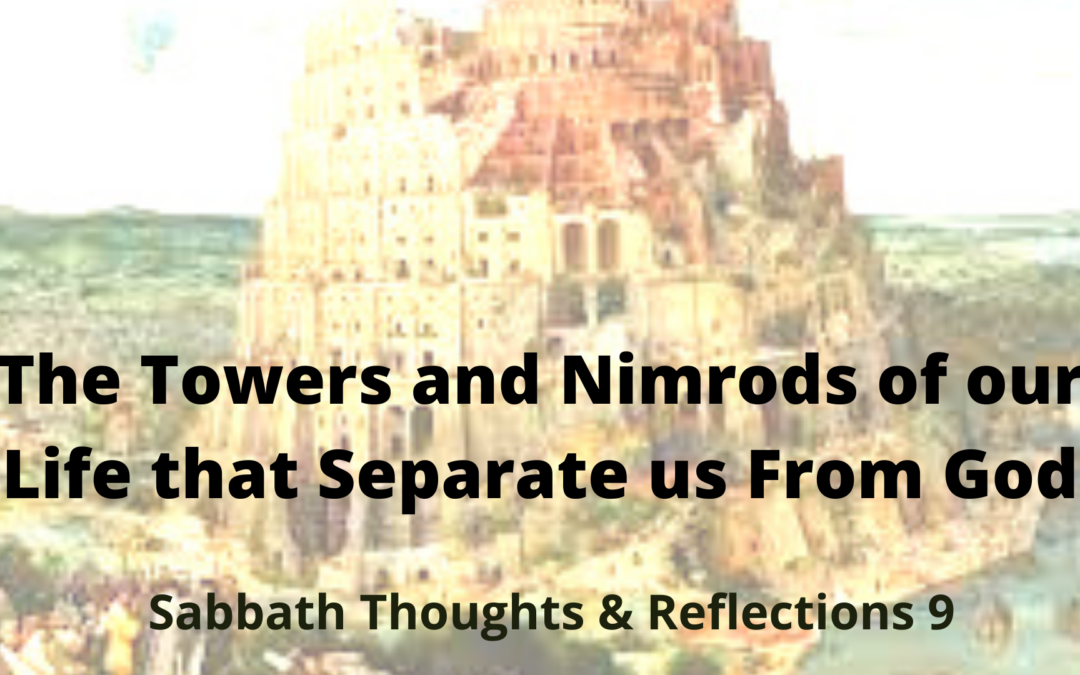
The Towers and Nimrods of our Life that Separate us From God
This week’s Torah Reading is based upon the Tower of Babel story. This story may cause us to reflect and think about those towers in our lives that cause us to be separated from God.
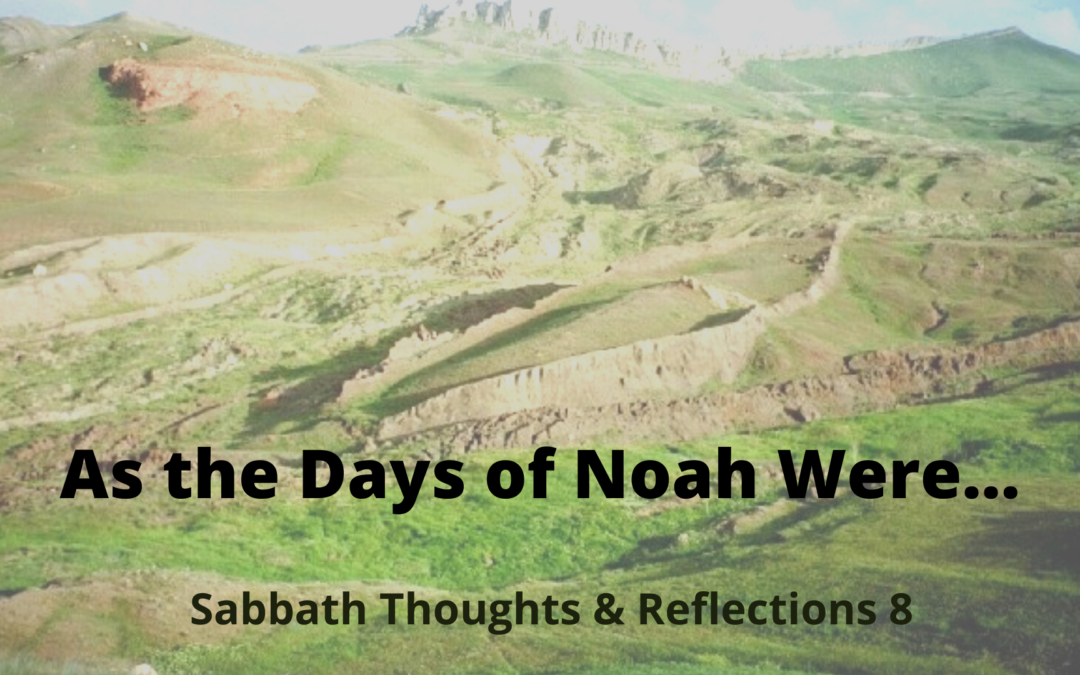
As the Days of Noah Were…Sabbath Thoughts and Reflections 8
What are the implications for us of Yeshua’s prophecy that the world He would return to would be as the days of Noah were? We discuss, think and reflect. Shabbat Shalom.
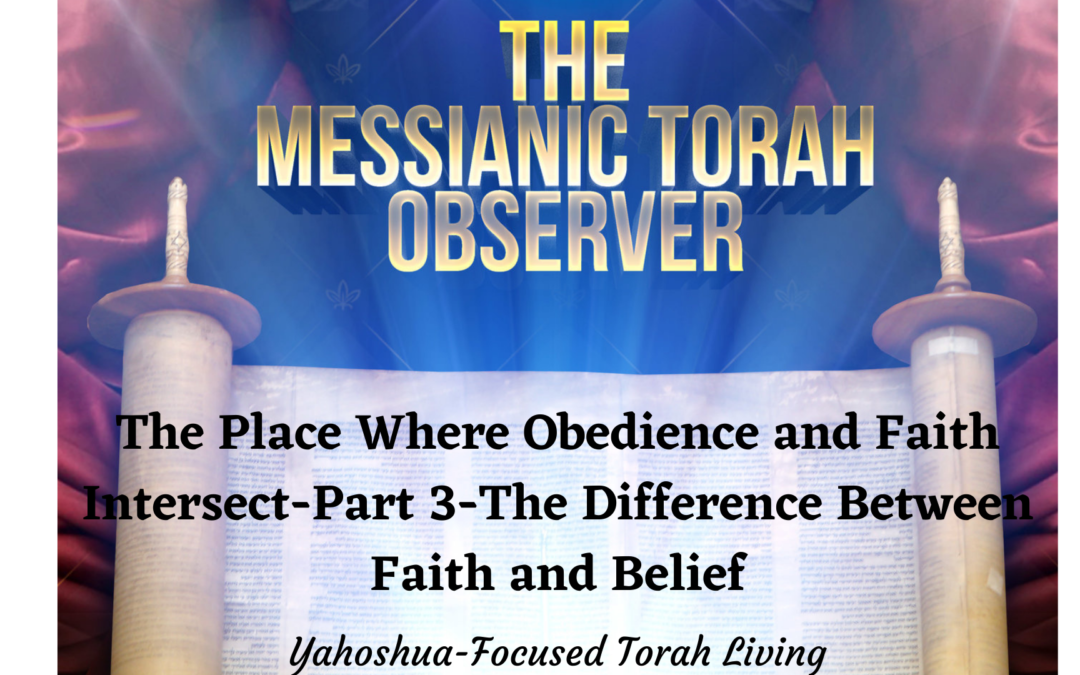
The Difference Between Faith and Belief-The Righteousness of God is the Place Where Obedience and Faith Intersect-Part 3
In our continuing exploration of Shaul’s teaching on the Righteousness of God, we answer the critical question: Is there a difference between biblical “faith” and “belief? Both terms are mentioned as important elements to our receiving of God’s Righteousness.
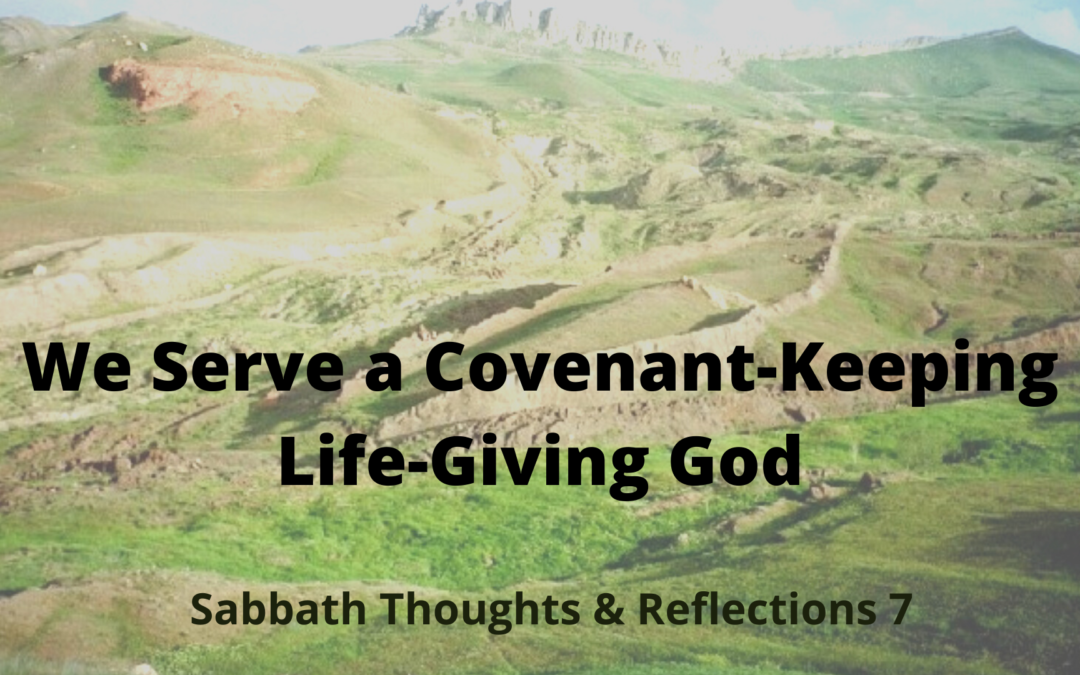
We Serve a Covenant-Keeping Life-Giving God-STAR-7
In this week’s Torah Reading, we discuss the Truth about the Noahide Laws; the true significance of the rainbow; and the character of God that promotes life and covenant among humanity. Come study and fellowship with us. Shabbat Shalom.
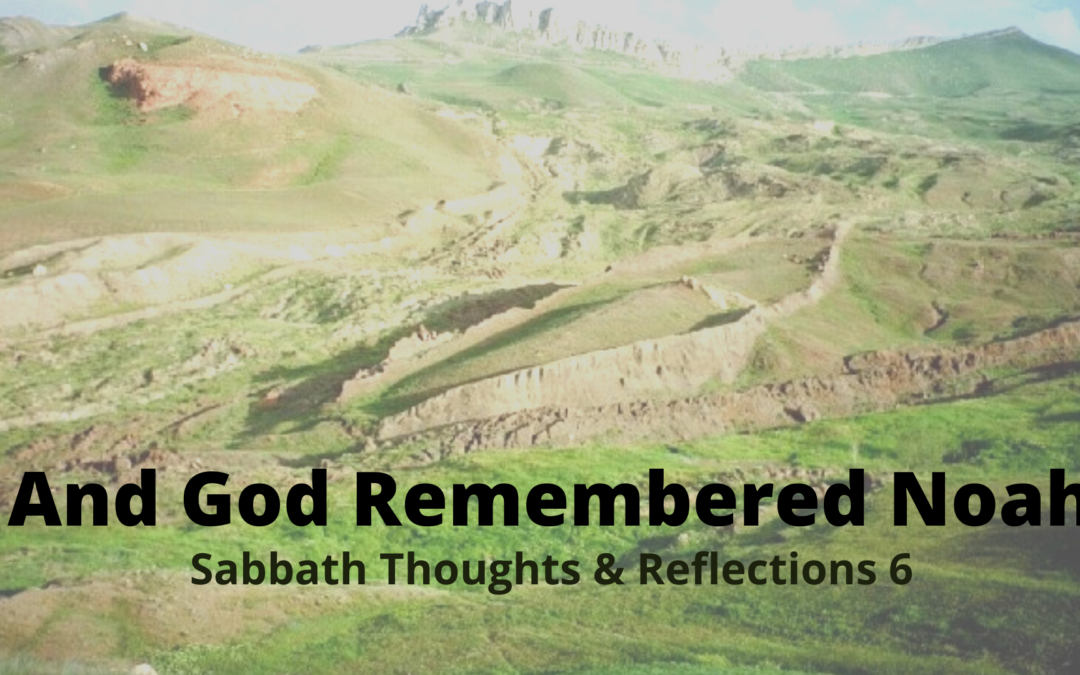
And God Remembered Noah-Sabbath Thoughts & Reflections 6
This week’s Torah Reading is the story of the saving of Noah and his family brought about through God keeping covenant and manifesting His righteousness. Come study with us. Shabbat Shalom.
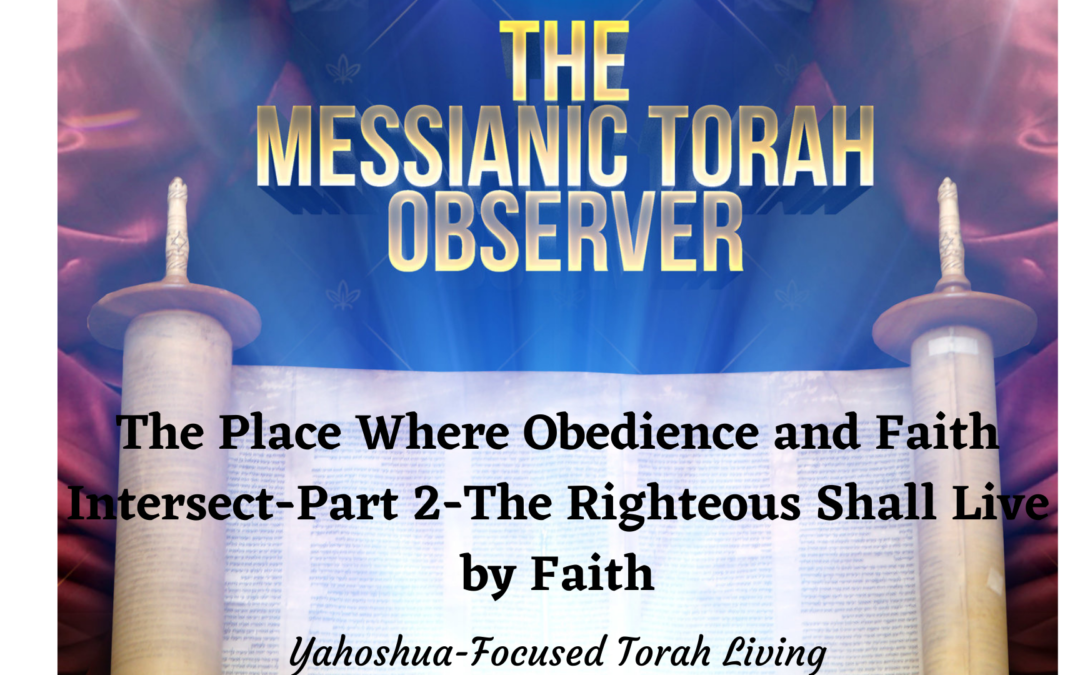
The Righteousness of God is the Place Where Obedience and Faith Intersect-Part 2-The Righteous Shall Live By Faith
Paul declared to the Romans that the just shall live by faith. What exactly did he mean by that statement, especially as it relates to our walk in Messiah? We discuss
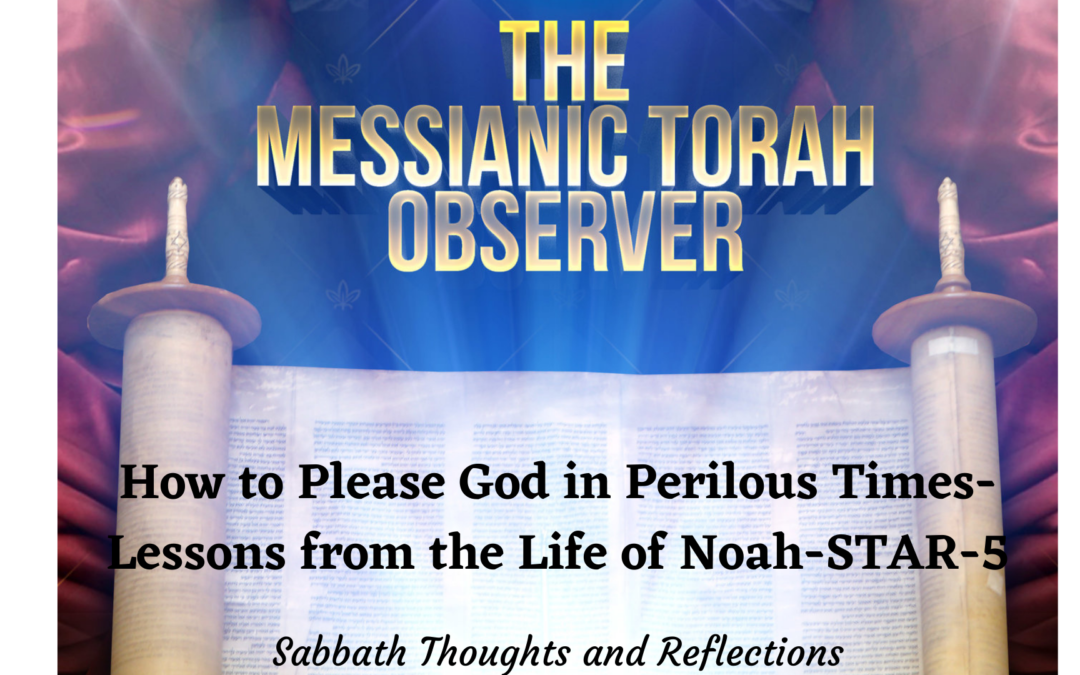
How to Please God in Perilous Times-Lessons from the Life of Noah-STAR-5
Noah pleased God in one of the most wicked periods of human history. What was it about Noah that pleased God? His story is the key to our pleasing God in these perilous times and we discuss in this installment of TMTO STAR.
Forbidden Messianic Titles and Roles for the Body of Messiah
This is "Forbidden Messianic Titles and Roles for the Body of Messiah." And this discussion is within the purview of the central theme for this ministry: "Yeshua-focused Torah Living." We are all about promoting the Netzari Faith that was once delivered to the...
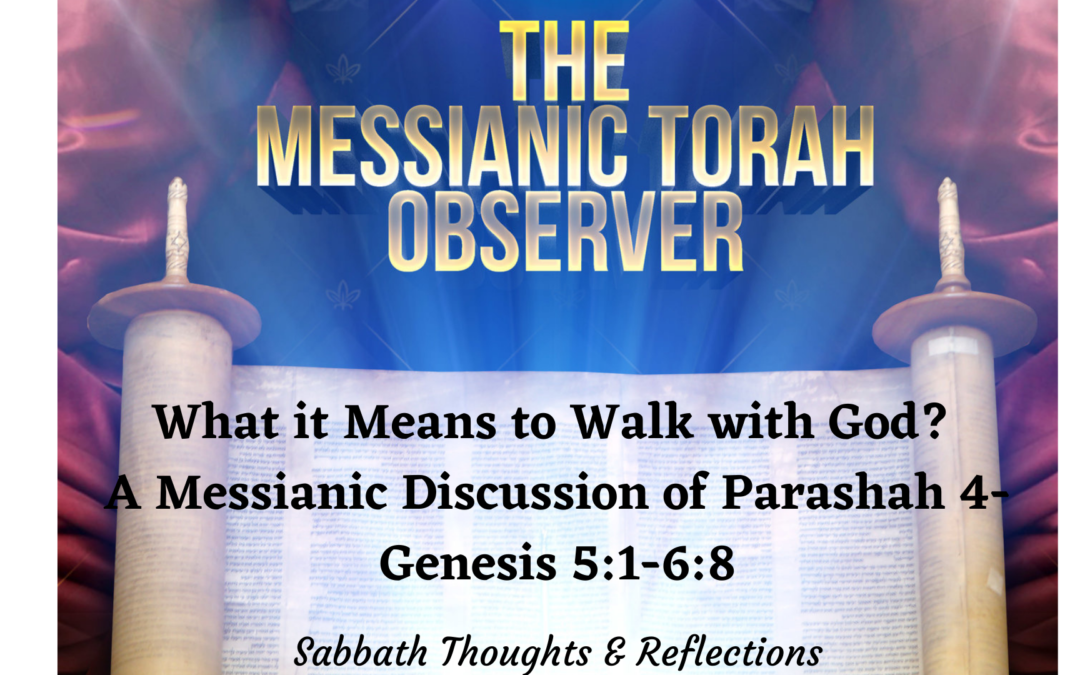
What it Means to Walk with God? STAR-4
Today’s discussion is entitled: “What it Means to Walk with God;” it is a Messianic Discussion of the 4th Parashah in the 3-year Torah Reading Cycle. Our discussion text for this Shabbat will be Genesis 5:1-6:8. I will be reading and commenting from the...
The Righteousness of God is the Place Where Obedience and Faith Intersect-Part 1-What is the Righteousness of God?
This is “The Righteousness of God is the Place Where Obedience and Faith Intersect—Part 1—What is the Righteousness of God?” Pose the Central Questions Inevitably, the central question facing Messianics is how does one balance a life of Torah-honoring with that of...
The Heart of True Worship-STAR-3-A Messianic Discussion of Genesis 4:1-26
Today’s discussion is entitled: “The Very Heart of True Worship;” it is a Messianic Discussion of the 3rd Parashah in the 3-year Torah Reading Cycle. Our discussion text for this Shabbat will be Genesis 4:1-26. I will be reading and commenting from the...
Who is to Blame for the Sin of the World? Adam or Eve?” STAR-2-A Discussion of Genesis 2:4-3:24
INTRODUCTION This is Sabbath Thoughts and Reflections 2—A Discussion of Genesis 2:4-3:24—Parashah 2 in our 3-year Torah Reading Cycle. Since the rabbis did not have a hand in naming the individual Torah Readings in the 3-year Reading Cycles, for the sake of reference,...
The Call to True Biblical Repentance is to Teshuva
A Question of Kingdom Preparedness This was a teaching I delivered to a Sabbath-keeping group online this past Sukkot. I've entitled it "The Call to True Biblical Repentance is to Teshuva." This teaching is actually the firstfruits, if you will, of an overall...
Made in the Image of God-Sabbath Thoughts & Reflections on Genesis 1:1-2:3
"In the beginning Yehovah created..." appears to be a subordinate or supportive statement as opposed to an independent clause. Assuming subordinate/supportive is accurate, the clause is better rendered: "When Yehovah began to create the heavens and the earth..."...
[If] The Law Does Not Save—[Then] What Good Is It–A Messianic Discussion of Romans 3:9-20
Goal Today’s installment of The Messianic Torah Observer is entitled: “[If] The Law Does Not Save—[Then] What Good Is It--A Messianic Discussion of Romans 3:9-20.” Our goal for today’s discussion is to draw from the Apostle Paul’s letter to the first-century Roman...
What Right Does God Have to Punish Anyone? A Messianic Discussion of Romans 3:5-8
Goal: This is a continuation and an expansion of the diatribe the apostle began back in the second half of the second chapter of Romans which I’ve entitled: “What Right Does God Have to Punish Anyone—A Messianic Discussion of Romans 3:5-8.” And our goal for this...
Let God Be True and Every Man a Liar–A Messianic Discussion of Romans 3:3-4
Goal: This is “Let God Be True and Every Man a Liar—A Messianic Discussion of Romans 3:3-4.” It will be a resumption of our examination and discussion of Romans chapter three (3), picking up where we left off from the last installment of our overarching Paul and...
The Oracles of God-The Jewish Advantage-A Messianic Discussion of Romans 3:1-2
The Oracles of God-The Jewish Advantage-A Discussion of Romans 3:1-2 Today’s discussion is entitled: “The Oracles of God—The Jewish Advantage--A Discussion of Romans 3:1-2. This will be a continuation of our long-running Paul and Hebrew Roots Series. Looking...
Paul on Physical Circumcision-A Question of One’s Jewishness Part 4
In today's post we answer the questions: Is physical circumcision still a valid commandment for men of faith to keep and obey? What advantage is there to physical circumcision? Synopsis of the Preceding Installments to the Series Over the course of the last three...
Marriage and Divorce According to Torah Part 2–A Discussion of Parashah 144
Marriage and Divorce According to Torah Part 2—A Discussion of Parashah 144 This is the second post or second half of the overall discussion I have for you regarding this week’s Torah Reading of Deuteronomy 24:1-4. In this post we will cover the teachings of Y’shua...
Marriage and Divorce According to Torah Part 1–A Discussion of Parashah 144
Marriage and Divorce According to Torah Part 1—A Discussion of Parashah 144 Although our Torah Reading for today, Parashah 144, covers Deuteronomy 24:1–25:19, I was led by the content to focus only on the first four-verses of the entire reading. The focus of these...
What Loving One Another Looks Like–The Morality and Love of Torah-Parashah 143
What Loving One Another Looks Like--The Morality and Love of Torah-Parashah 143—Sabbath Thoughts and Reflections Our Torah Reading This Week—Parashah 143—Is Found in Deuteronomy 22:8-23:25 The physical should always be followed when applicable, but also the...
What is the True State of our Worship?–Parashah 139 Discussion and Study
What is the True State of our Worship?--Parashah 139 Discussion and Study In today’s installment we will be discussing Parashah 139—which is contained in Deuteronomy 17:1-20. So grab your bible and maybe a cup of coffee or tea, and let’s get into our study of Yah’s...
A Sit-Down Conversation with Dr. Miles R. Jones on the Survival of the Hebrew Gospels
Greek Primacy vs. Hebrew We have been indoctrinated and taught that the original Gospel texts of Matthew, Mark, Luke, John, Acts and Revelation were all written in ancient Greek. But is this in fact true? For one must rationalize that the writers of these texts were...
Round and Round the Asherah Pole We Go–Parashah 138
This Week’s Torah Reading This week’s Torah Reading, Parashah 138, is contained in Deuteronomy 16:13-22. My ruach eye (that is, my spirit eye) seemed focused primarily on Deuteronomy 16:21-22. These two verses has to do with, yet again, another admonishment to avoid...
Paul on Physical Circumcision for God’s People–A Question of One’s Jewishness Part 3
Opening Remarks on Paul on the Question of Physical Circumcision for God’s People In this installment of the Messianic Torah Observer, we return to our Paul and Hebrew Roots Series and to our series within a series entitled: “A Question of One’s Jewishness.” Today,...
God’s Food Laws-Tithing-Walking in Obedient Covenant Relationship with God-Parashah 136
This Week’s Torah Reading is found in Deuteronomy 12:20-15:6. I’ve entitled this discussion: Gods Food Laws-Tithing-Walking in Obedient Covenant Relationship with God-Parashah 136 Personal Perspective—Opening Remarks Our obedient covenant relationship with the...
Racism and Faith–What Walking in Torah With a Circumcised Heart Looks Like—Parashah 134
How Yah views race and skin color This past week’s interaction with Faith and Race. Not a direct interaction, but an interaction that directly affected friends of this ministry. And these friends ended up having a very troubling experience with a member a black...
Humility-Pride-Remembering-God’s Grace and God’s Faithfulness—Parashah 133
Our Torah Reading: Deuteronomy 9:1-29—Humility-Pride-Remembering-God’s Grace and Faithfulness—Parashah 133 Father’s Faithfulness Stands Despite Our Debased Nature How are we to understand Father’s faithfulness towards us despite our incessant propensity to...
Who and What is Yeshua Messiah-My Personal Perspective on the Person of Yeshua Messiah
Recently, a dear sister discovered this ministry through our website, www.themessianictorahobserver.org. She reached out to me via a couple email messages. And she posed the question: Who or what I believe Yeshua Messiah to be? And she prefaced her question by...
Yeshua-The Bread of Life-Torah Reading-132
Introduction to Parashah 132—Yeshua, the Bread of Life Our Parshah this week, under the 3-year Torah Reading cycle, is found in Deuteronomy 8:1-20. The most prominent verse in the reading is verse 3: “Thou shalt not live by bread alone, but by every Word that...
Blaspheming the Name of God-Part-2 of the Series A Question of One’s Jewishness
Picking-Up Where We Left Off What I want to do this week is to pick-up from where we left off from the last installment of this series within a series which was entitled: "You Are Called a Jew" and move on through verses 19 through 24 in this installment. And...
The Shema-God’s Word Dwelling Within Us-Sabbath Thoughts & Reflections-Parashah 131
Today's Torah Reading Shabbat Shalom beloved of the Most High and sister and brother of the true Faith once delivered. Today's Torah Reading or Parshah is found in Deuteronomy 6:4-7:26; Zechariah 14:1-9; and Mark 12:28-34. But given the content rich nature of this...
Hear O Israel The Statutes and Ordinances Which I Speak-Thoughts and Reflections on Parashah 130-Deuteronomy 5:1-6:3
What Yehovah Expects of His Children This week's Torah Reading (aka parshah), found in Deuteronomy 5:1-6:3, is a reiteration of the 10-Commandments by Moshe to the generation slated to enter the Land of Promise. And along with that iteration comes clarification as to...
Heeding Zophar’s Wisdom About Yehovah
Job: A Story With Many Complexities You know, the story of Job is not by any stretch of the imagination an easy one to work through. Theres just so many complex literary and spiritual textures and concepts woven into the baseline story. The Cepher of Job is in part a...
Can I Get a Witness Up In Here?
A Story of Witness and Commitment to YHVH Picking up from my last blog-post taken from the Cepher of Y’hoshua (aka Joshua), I wish to now turn our attention to chapter 22, verses 10-34. And what we find here in this passage of Holy Writ is an amazing but awesome...
The Great Commitment to Kingdom Living by God’s Elect
My daily Torah studies this morning brought me to the Cepher of Y'hoshua (aka Joshua), chapter 22. By the end of my studies this morning, I was compelled to ask myself, what is the level of commitment I had to walking and living Kingdom. You'll soon see what I mean....
You Are Called a Jew-Part 1 of the Series: A Question of One’s Jewishness
Goal Today we continue our exposition into some of the Apostle Paul's most challenging and hard to understand writings and teachings, having just concluded in our previous post a discussion on the apostle's naming the "gospel" as "my gospel." (I would humbly...
The Gospel According to the Apostle Paul
Our New Challenging Pauline Passage--Romans 2:16--A Seemingly Bold and Curt Statement From the Apostle. Our focus passage, or more precisely, our focus verse today is Romans 2:16. And we find when we read this verse a rather bold and seemingly curt statement...
Are You Under the Law? Part 4 of the Paul on Being Under the Law Series
A Culmination of the Previous 3-Installments Today's discussion is a culmination of the previous 3-installments of this series within a series where we'll finally answer the question: What did Paul mean by one who is under the Law as mentioned in Romans 6:14-15. And...

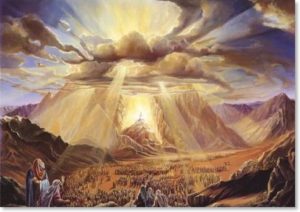

0 Comments